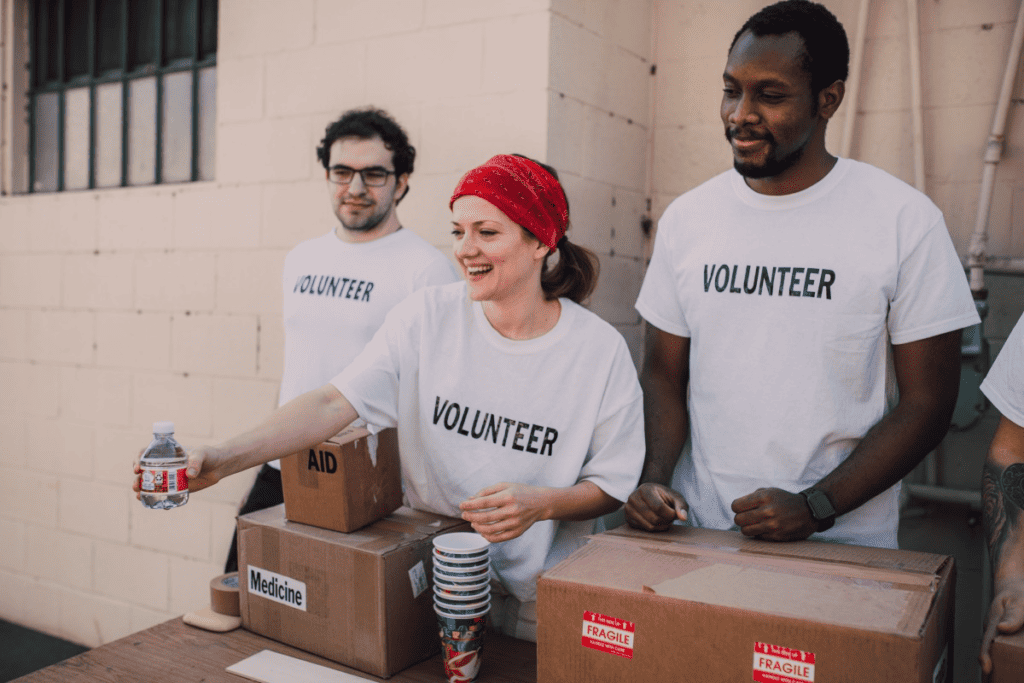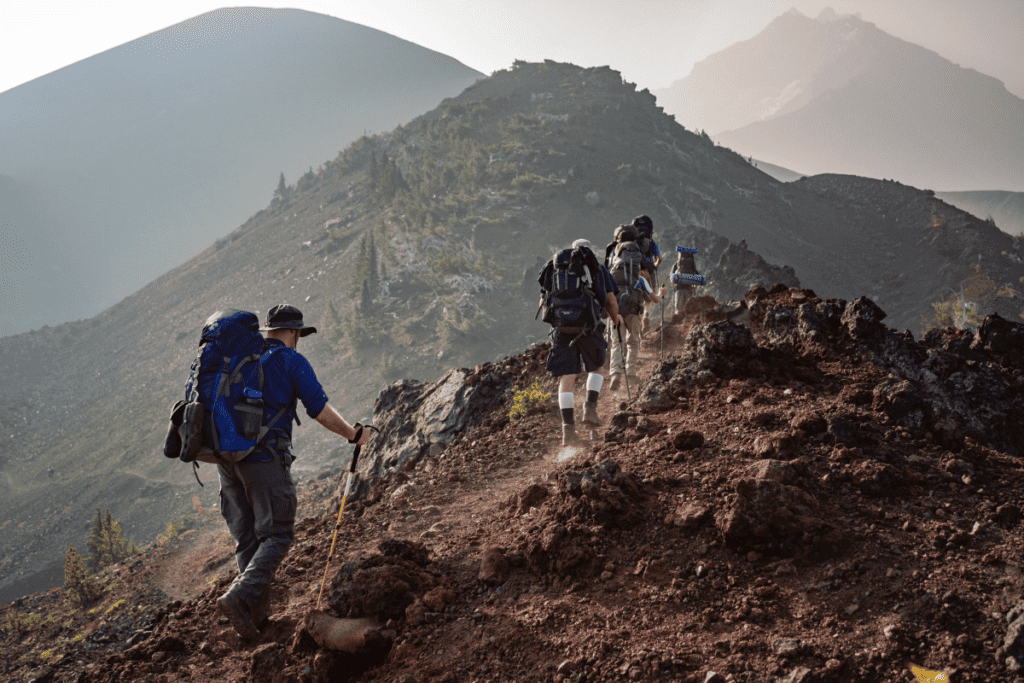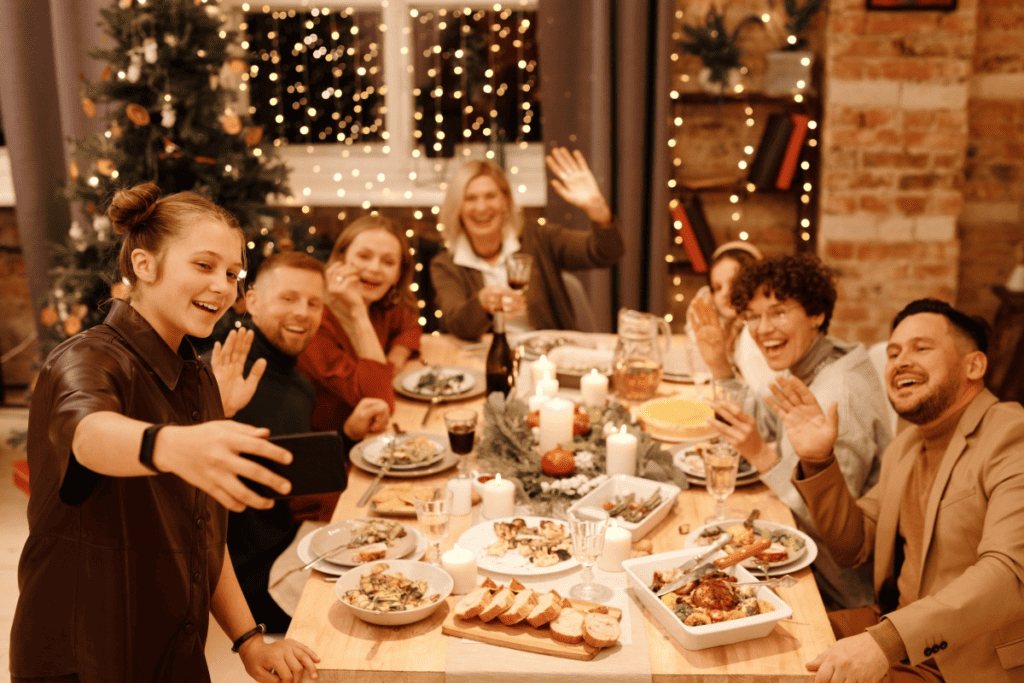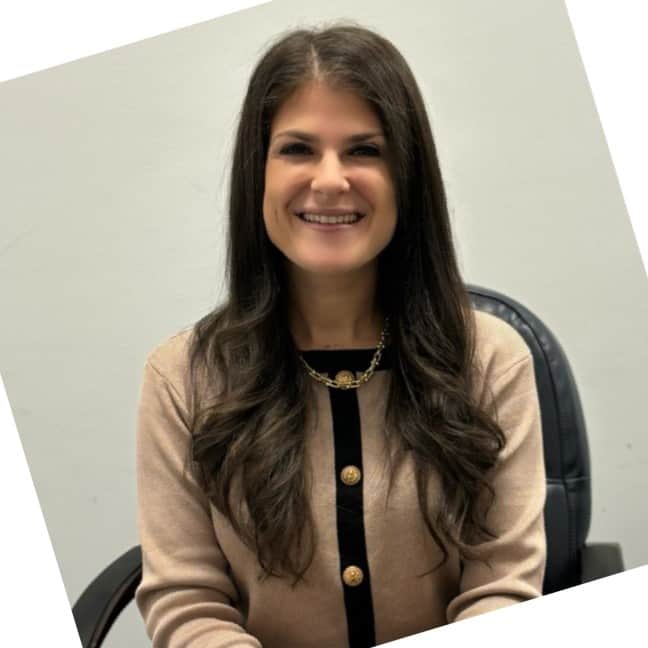Understanding substance use disorder and addiction is an important part of holding to the life-long decision to stay sober. It requires a personal commitment, coping skills, and supportive relationships to stay clean, and it’s a lifelong process.
Historical data shows alarming facts about holiday-related drug and alcohol abuse. From drunk drinking accidents to home incidents leading to emergency room visits, patterns exist that show how substance use is often a prominent part of get-togethers. However, for individuals participating in addiction treatment to stay sober, substance misuse poses additional problems. Holiday events and parties tend to include alcohol.
Social events with loved ones can be a tricky situation. Certain people find it best to avoid situations where triggers may be present entirely. For others, being able to attend these gatherings is more favorable, and tips for staying sober can make a big difference in their recovery process.
#1 – Set Healthy Boundaries for Staying Sober
The first tip is to set healthy boundaries to stay sober during the holidays. Communicating these boundaries with family members starts with letting them know your sobriety goals. There is nothing wrong with setting expectations for how people treat you, especially when it’s regarding substance use disorder. Self-worth starts with being firm about your recovery process.
Navigating risky situations can be easier when planned in advance. Here are some healthy boundary tips for staying sober:
- Be open about your decision by letting family and friends know that you will not be using drugs or alcohol during any festivities.
- Plan how you can keep to your goals in advance by discussing with the event host beforehand, asking if non-alcoholic beverages will be available, or planning to bring your own.
- Ask a loved one to be an accountability partner who can help you stick to your decisions even if you begin struggling with cravings and watch for warning signs that you need extra help.
- Set clear boundaries about what you find acceptable in conversations, jokes, or comments about your relationship with drug or alcohol abuse.
- Suggest alternative or new activities for the social event that do not include drinking or substance use.
We’ve Helped Thousands of Individuals Overcome Drug and Alcohol Addiction
#2 – Learn Non-Alcoholic Drinks and Mocktail Recipes
The holiday season is often linked to festive drinks and cocktails. If you’re staying sober, finding alternatives can be challenging. That’s why non-alcoholic options and mocktail recipes are the second tip. These can be equally enjoyable, are better for your health, and don’t affect your addiction treatment. With these beverages, you can reduce the risk of being tempted to start drinking during holiday parties.
One approach to finding non-alcoholic drinks is exploring the market for ready-made options. Many brands now offer a wide range of non-alcoholic beverages that imitate the flavors of popular alcoholic drinks. You may find non-alcoholic beer, wine, or spirits that can substitute for your favorite cocktail recipes. These products are widely available at most grocery stores or specialty stores. You can also create your mocktails at home using simple ingredients. Numerous mocktail recipes that cater specifically to those who prefer alcohol-free beverages are available online. These recipes often use fruit juices, soda water, fresh fruits or herbs for flavoring, and garnishes such as citrus slices or mint leaves for added visual appeal.
When attending holiday parties where alcohol will be served, it’s a good idea to bring your non-alcoholic drink options along. This ensures you have something tasty and satisfying while different people indulge in alcoholic beverages. By trying to find or create delicious non-alcoholic drinks and mocktails, you not only have something enjoyable to sip on during holiday gatherings but also feel included in the festivities without falling into old habits and compromising your sobriety progress.
#3 – Planning Sober Activities and Events
Planning sober activities and events is the third of the tips for staying sober during the holidays. By planning other ways to spend time, you can avoid past mistakes and reduce risk of relapse.
Working toward achievable goals is one way to stick to sobriety. This can mean working toward a marathon you want to run, finishing a novel, or getting your home organized. Working on your health and body through exercise and hobbies can be fun and rewarding.
Volunteering is another good option for the holidays. Whether you serve meals at a homeless shelter or participate in a toy drive, giving back to the community can make you feel like a better person and reduce feelings of anxiety and depression. Not only are you helping those in need, but you can make new friends who aren’t related to your past with alcohol or drugs.

Attending support group meetings is another excellent way to stay engaged and connected during the holiday season. Many groups, such as Alcoholics Anonymous or Narcotics Anonymous, hold special meetings or events tailored to this time of year. These gatherings provide a safe space for individuals in recovery to share experiences, seek advice, and find encouragement from others who understand their journey. Regularly attending these meetings reinforces your commitment while surrounding yourself with a supportive community.
You can also plan outdoor activities such as hikes, or nature walks with sober friends. Being outdoors isn’t just about exercise – it can also help with mindfulness and gratitude.
#4 – Plan How to Cope with Drug and Alcohol Abuse Triggers
The holiday season can be filled with triggers and stressful situations that test your commitment to sobriety. That’s why the fourth tip is about preparing for risky situations. Be prepared with coping strategies for challenging moments that may happen. Here are practical tips for staying sober when dealing with triggers and stressful situations:
Identify your triggers
Reflect on past experiences during the holidays that triggered cravings or tempted you to drink. Common triggers may include stress, social pressure, being around people who are indulging in alcohol or drugs, or even certain holiday traditions. Plan more strategies to address these and prevent relapse with alcohol or drugs.
Have an escape plan
If something should happen and you feel overwhelmed or triggered, have an escape plan. This could involve having trusted family and friends available for support or arranging alternative activities that remove you from the situation that may lead to a relapse.
Practice stress management techniques
The holiday season brings additional stress due to shopping, family dynamics, and financial pressures. Practice effective stress management techniques such as exercise as deep breathing exercises, meditation, journaling, or engaging in physical activities like yoga or walking.
Surround yourself with supportive people
Make sure you are around people who understand and support your commitment to sobriety during the holidays. Communicate openly about your concerns and ask for their help when needed. Knowing that you can ask a friend or family member to help you avoid taking a drink can make all the difference in sustained sobriety during difficult times.
Practice Self-Care
Prioritize self-care throughout the holiday season by getting enough restful sleep, eating well-balanced meals, and getting enough exercise. Stay hydrated and practice relaxation techniques like taking warm baths or engaging in hobbies you enjoy.

#5 – Seek Community or Professional Help to Stay Sober
Having supportive relationships can help you stay sober. However, sometimes, other support groups can reduce risk of relapse since the people there have personal experience with substance use. When you still don’t feel like this is enough, professional help may be the best course.
Communicate your needs
Let the people you’re spending time with know about your commitment to sobriety during the holidays. Explain why it’s important to remain sober and how their understanding and empathy can make a difference.
Lean on trusted friends and family members
Identify individuals in your social circle who support your recovery journey. Share with them what you may be going through during this time of year and ask for their assistance keeping you accountable. Let your support network know if you are finding it particularly difficult to remain sober from substance abuse. It’s a life-long struggle, and friends or a loved one can make all the difference if you’re struggling.
Create an emergency contact list
List essential phone numbers you can contact when experiencing temptation or struggling with cravings. Include close friends, family members, sponsors, or helpline numbers for addiction recovery centers.
Attend support groups
Many cities have local Alcoholics Anonymous (AA) meetings, or Narcotics Anonymous (NA) meetings, or other recovery groups that hold special gatherings during the holiday season. Many people at these meetings know that addiction is a life-long challenge and can offer more strategies that help prevent relapse.
Consider therapy or counseling sessions
If you find yourself needing additional professional help during this challenging time, reach out to therapists specializing in alcohol or drug addiction. Your life doesn’t have to be controlled by alcohol or drugs.
Once you have done the work to achieve sobriety, the recovery process can be helped through coping skills taught by a professional or strong support network.
Recovery Starts at Our Drug and Alcohol Rehab by Requesting a Call
"*" indicates required fields
Get Help at Right Path Recovery
Right Path Recovery offers a range of services to assist individuals in overcoming addiction and staying sober during the holidays. Our expertise includes detoxification, residential programs, PHP, relapse prevention, intervention with other support groups, and individualized recovery plans. We provide the necessary tools and support for a successful journey to recovery. It doesn’t happen overnight, but your life should be yours.

Our detox program safely removes substances from the body while minimizing withdrawal symptoms that can cause physical pain. After detoxification, our residential treatment program offers a structured and supportive environment for individuals focusing on their recovery. We address the underlying causes of addiction through substance use through evidence-based therapies and holistic approaches that equip individuals with coping strategies to navigate holiday triggers.
At Right Path Recovery, we understand that each person’s journey is unique. Our experienced professionals tailor treatment plans to meet individual needs by addressing co-occurring disorders and providing aftercare support services. We are committed to their behavioral health and helping clients achieve long-term sobriety.
The holiday season can be challenging for those in recovery. That’s why we prioritize relapse prevention strategies that empower individuals with practical tools to manage emotional stress and pain, cravings, and other holiday stressors. Our comprehensive approach ensures ongoing support through the recovery process and our aftercare services. If you or someone you know is seeking alcohol and drug rehab options focused on staying sober during the holidays, send us a message or give us a call at (888) 291-7388. Right Path Recovery is here to help guide you toward a healthier future filled with hope and sobriety.

Insurance Can Cover up to 100% of The Costs of Addiction Treatment and Mental Health Care
Did you know that insurance can cover up to 100% of the costs of addiction treatment and mental health care? Our addiction treatment center accepts most insurance plans. For a free insurance benefits check complete our confidential insurance verification form by clicking the link below.













